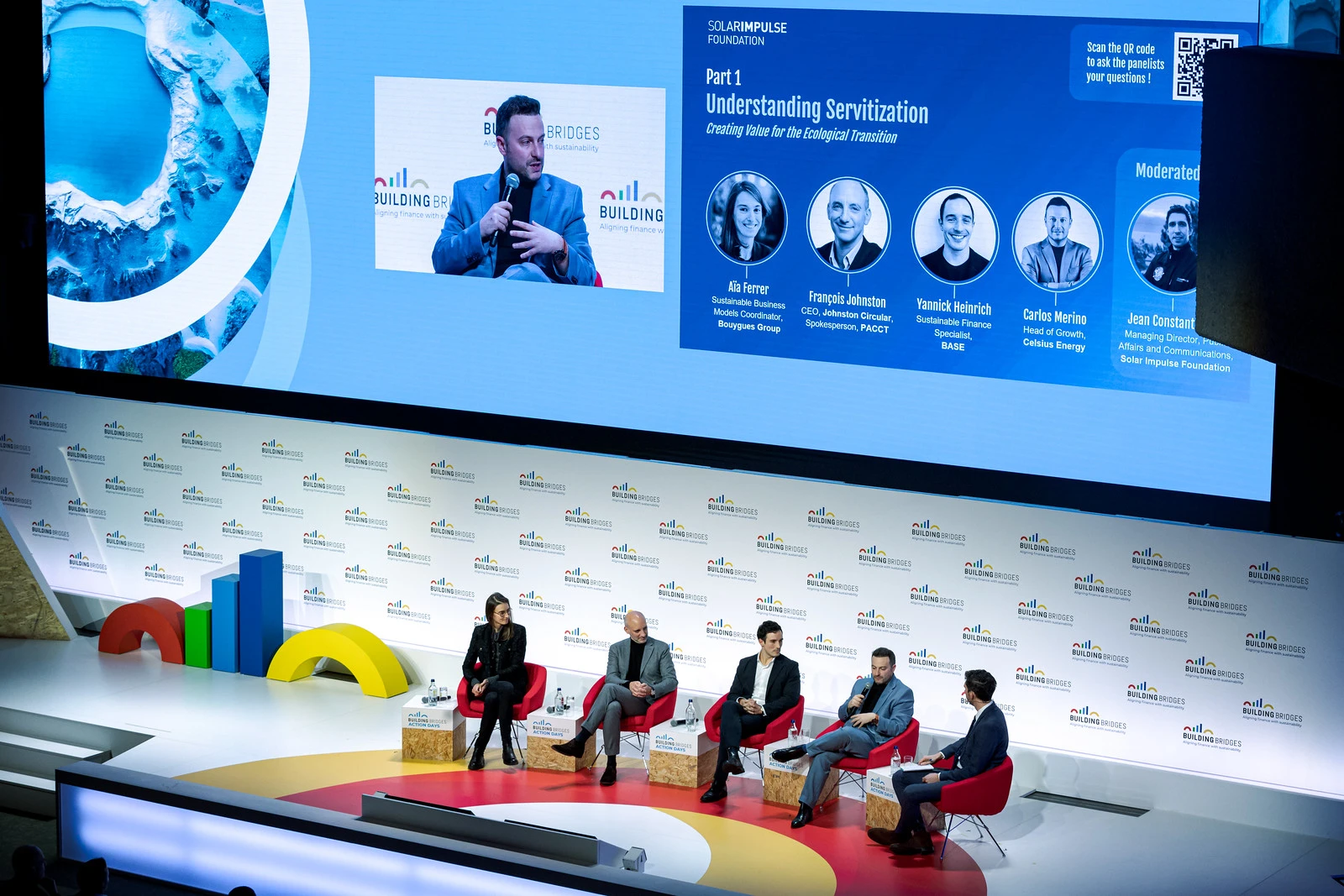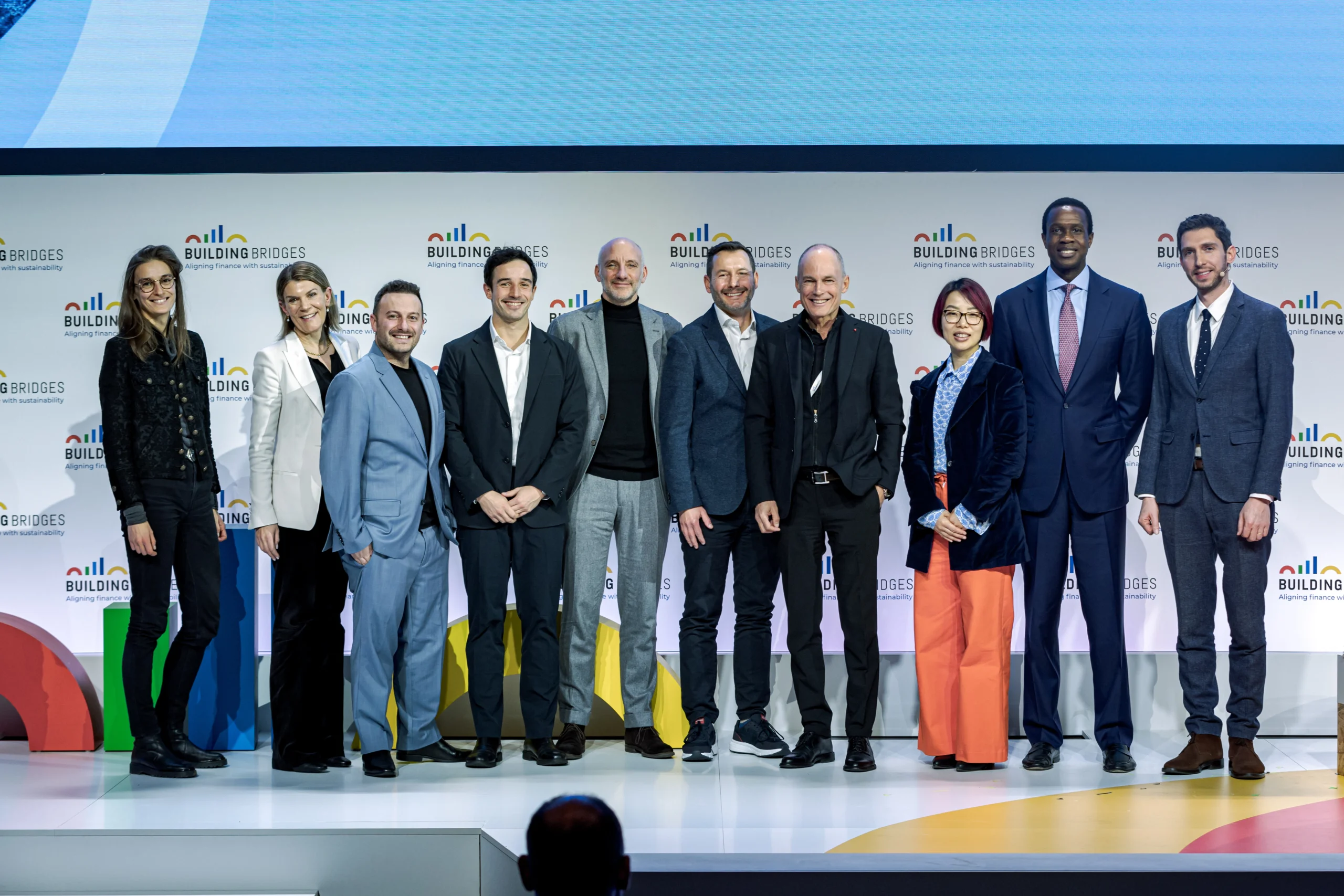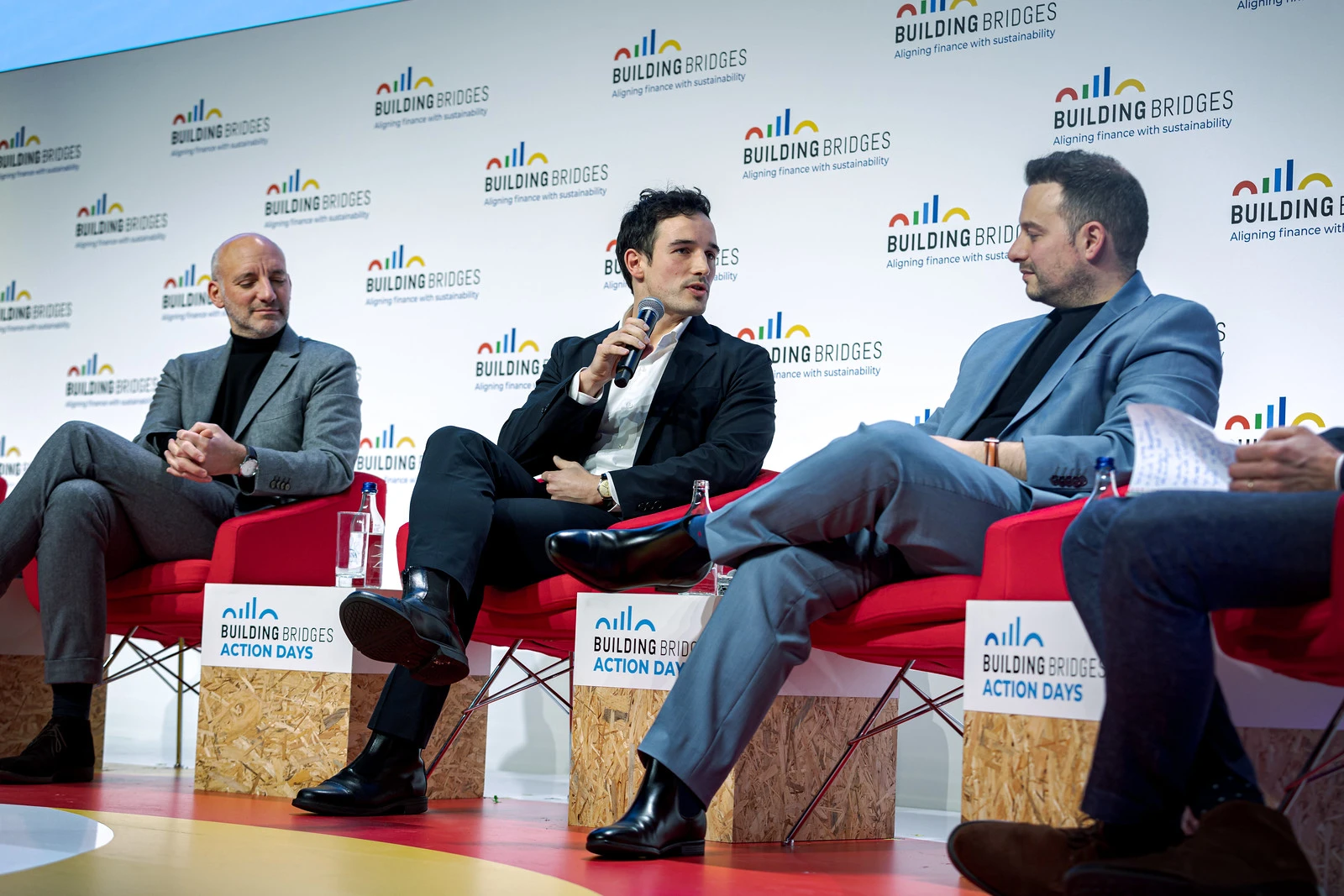Servitisation as a Catalyst for the Energy Transition – Insights from Building Bridges 2024

Date
January 30, 2025
Insights
At this year’s Building Bridges conference in Geneva, Yannick Heinrich, Project Lead for Servetia at the BASE Foundation, had the privilege of joining an esteemed panel to discuss the transformative potential of servitisation. The session, titled “Towards a Qualitative Economy – Servitization Business Models as a Way to Accelerate the Ecological Transition” and hosted by the Solar Impulse Foundation, explored how ‘as-a-Service’ business models can bridge the gap between sustainability and profitability. The event spotlighted actionable strategies to scale cleantech adoption and drive impactful energy efficiency improvements for a sustainable future.
Servetia’s Role in Driving Servitisation
The event was an excellent opportunity for Servetia to showcase its pioneering work in advancing servitisation models across Switzerland. Yannick Heinrich presented compelling real-world examples, demonstrating how these models have supported organisations in the healthcare and industrial sectors to overcome barriers to decarbonisation.
Drawing on Servetia’s experience with projects such as photovoltaic (PV) installations, heating-as-a-service, and LED retrofits, Yannick highlighted how servitisation enables organisations to achieve predictable operational costs, free up internal capacity, and access cutting-edge energy technologies without the need for significant upfront investment.
A Distinguished Panel of Experts
The panel was introduced by Bertrand Piccard, Chairman of the Solar Impulse Foundation, and included:
- Elina Roine, Deputy Director General of Operations, European Investment Bank
- Souleymane Ba, Partner and Global Co-Head of Climate Investment Strategy, LeapFrog Investments
- François Johnston, Founder, PACCT for Sustainability
- Carlos Merino, Head of Growth, Celsius Energy
- Slawomir Huss, Partner, Solas Capital AG
- Aïa Ferrer, Sustainable Business Model Coordinator, Groupe Bouygues
- Grace Tam, Director of Investments, Clean Energy Finance Corporation
- Yannick Heinrich, Project Lead Servetia, BASE Foundation
Together, they explored how the servitisation model can act as a catalyst for scaling cleantech solutions and advancing the global energy transition.

Key Messages from the Discussion
Several critical themes emerged during the panel:
- Transforming the Status Quo: Yannick emphasised that servitisation shifts the focus from ownership to outcomes, incentivising providers to deliver optimal performance while ensuring financial predictability for clients.
- Global Applicability: The panel highlighted how servitisation is a versatile model, addressing unique challenges in both developed markets like Switzerland and emerging economies.
- Tangible Results: Yannick shared Servetia’s work with Swiss end-users, such as hospitals and industrial facilities, where tailored solutions have demonstrated clear financial and environmental benefits.
A Shared Vision for the Future
The session underlined the importance of collaboration between end-users, technology providers, and financiers to unlock the full potential of servitisation. By aligning the interests of all stakeholders, this model has the capacity to accelerate the adoption of renewable energy technologies and energy-efficient systems on a global scale.
Looking Forward
Building Bridges 2024 reinforced the value of servitisation in addressing urgent climate challenges while ensuring economic viability. As Servetia continues its mission, we are inspired by the momentum generated during this session to push forward innovative, impactful solutions for the energy transition.
For more updates on our initiatives and achievements, stay connected with Servetia!
